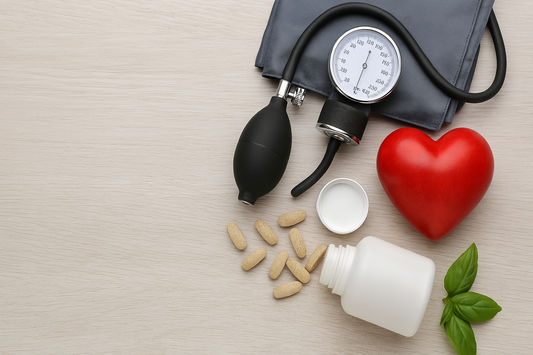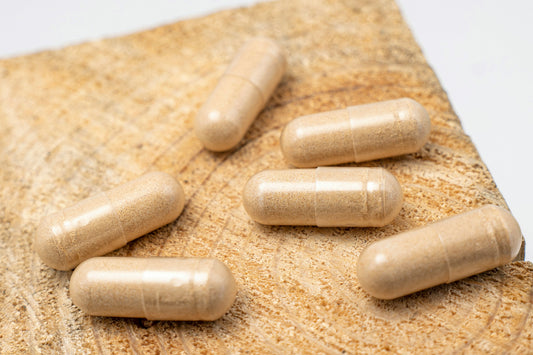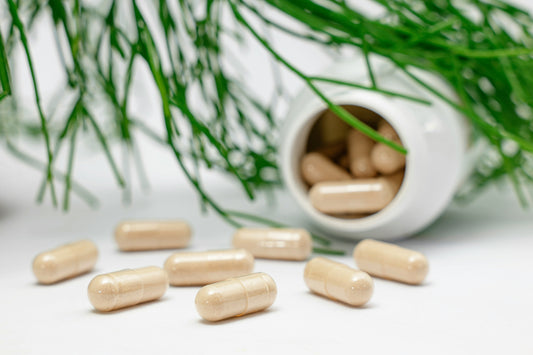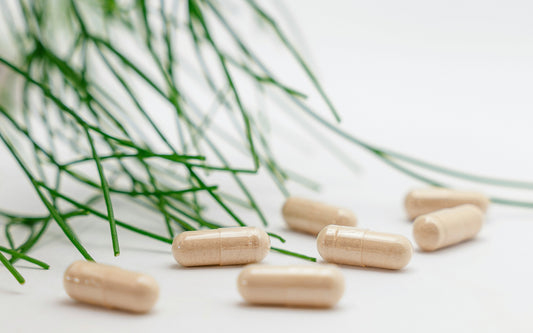Does Hibiscus Flower Lower Blood Pressure?
Hibiscus flower has long been believed to have beneficial effects on blood pressure and is often used as a natural remedy for hypertension. Research has shown that hibiscus tea, made from the dried petals of the flower, may indeed have the potential to lower blood pressure. Additionally, hibiscus tea has been associated with improving cholesterol levels and aiding in weight management. However, it is important to understand the facts and consider any potential precautions before incorporating hibiscus flower into your health regimen.
Key Takeaways:
- Hibiscus flower is believed to have beneficial effects on blood pressure.
- Hibiscus tea may help lower both systolic and diastolic blood pressure.
- Drinking hibiscus tea may improve cholesterol levels, increasing "good" cholesterol and decreasing "bad" cholesterol and triglycerides.
- Hibiscus tea may potentially aid in weight management by reducing body weight, body fat, and BMI.
- It is important to consume hibiscus tea in moderation and consult with a healthcare professional before incorporating it into your diet, as high doses may cause liver damage and it may interact with certain medications.
As we delve into the science behind hibiscus flower's effects on blood pressure and explore its potential benefits, it's crucial to understand the importance of moderation and personalized healthcare advice. Let's uncover the facts together and see whether hibiscus flower truly lives up to its reputation as a natural remedy for lowering blood pressure.
The Science Behind Hibiscus and Blood Pressure
Numerous studies have explored the relationship between hibiscus tea and its impact on blood pressure levels, providing valuable insight into its effectiveness as a natural treatment option. This vibrant and fragrant beverage, made from the dried petals of the hibiscus flower, has long been cherished for its potential health benefits.
Research has shown that drinking hibiscus tea on a regular basis may lead to a significant reduction in both systolic and diastolic blood pressure. This is attributed to the presence of bioactive compounds called anthocyanins and polyphenols, which are known to have antihypertensive properties. These compounds help to relax the blood vessels, allowing for better blood flow and a decrease in overall blood pressure.
Furthermore, hibiscus tea has also been found to positively influence cholesterol levels. Studies have indicated that regular consumption of hibiscus tea may help increase levels of HDL cholesterol, also known as the "good" cholesterol, while simultaneously decreasing levels of LDL cholesterol, or the "bad" cholesterol, as well as triglycerides. This dual effect on blood pressure and cholesterol makes hibiscus tea a promising natural remedy for those seeking to improve their cardiovascular health.
It is important to note that while hibiscus tea offers potential health benefits, it should be consumed in moderation. High doses of hibiscus extract have been shown to potentially cause liver damage. Additionally, hibiscus tea may interact with certain medications, so it is always recommended to consult with a healthcare professional before incorporating it into your daily routine.
Overall, the science behind hibiscus and its impact on blood pressure levels is promising. However, further research is needed to fully understand the mechanisms of action and to determine an optimal dosage for maximum benefits. In the meantime, adding a cup of hibiscus tea to your daily regimen may be a delicious and refreshing way to support your cardiovascular health.

In addition to its potential to lower blood pressure, hibiscus flower may also have positive effects on cholesterol levels, making it a holistic treatment option for cardiovascular health. Studies have shown that hibiscus flower extract can help increase HDL ("good") cholesterol and decrease LDL ("bad") cholesterol and triglycerides.
Research has indicated that the anthocyanins and polyphenols present in hibiscus flower extract may contribute to these cholesterol-lowering effects. These compounds have antioxidant properties that can help prevent the oxidation of LDL cholesterol, reducing the risk of plaque formation in the arteries.
Furthermore, a study published in the Journal of Alternative and Complementary Medicine found that hibiscus extract supplementation significantly reduced total cholesterol and LDL cholesterol levels in individuals with metabolic syndrome. Another study showed that hibiscus extract had a positive impact on lipid profiles in people with diabetes, suggesting its potential benefits in managing cholesterol levels for those with underlying health conditions.
Hibiscus Flower's Effect on Cholesterol Levels - Table
| Study | Participants | Duration | Results |
|---|---|---|---|
| Study 1 | Individuals with metabolic syndrome | 12 weeks | Significant reduction in total cholesterol and LDL cholesterol levels |
| Study 2 | Individuals with diabetes | 8 weeks | Positive impact on lipid profiles |
It is important to note that while hibiscus flower extract may show promise in improving cholesterol levels, it should not replace standard medical treatments or medications without consulting with a healthcare professional. Additionally, further research is needed to fully understand the potential mechanisms and long-term effects of hibiscus flower on cholesterol management.
If you are interested in trying a natural approach to managing your blood pressure, Nutrigrove Blood Pressure Support can be a helpful supplement to consider. This supplement is formulated with a blend of natural ingredients, including hibiscus flower extracts, that has been shown to support healthy blood pressure levels.
In addition to its potential role in weight management, hibiscus tea has been found to be beneficial for individuals with high blood pressure. Drinking hibiscus tea on a regular basis has been shown to lower both systolic and diastolic blood pressure. This is thought to be due to the tea's ability to relax blood vessels and improve blood flow. By managing blood pressure levels naturally, hibiscus tea may help reduce the risk of heart disease and other cardiovascular complications.
It's important to note that while hibiscus tea offers potential health benefits, it should be consumed in moderation. High doses of hibiscus extract have been shown to potentially cause liver damage, so it's advisable to stick to recommended intake guidelines. Additionally, hibiscus tea may interact with certain medications, so it's always best to consult with a healthcare professional before incorporating it into your diet.
| Hibiscus Tea Benefits | How to Enjoy |
|---|---|
| May aid in weight loss by reducing body weight, body fat, and BMI | Enjoy a cup of hibiscus tea in the morning or throughout the day |
| May help manage blood pressure levels by reducing both systolic and diastolic blood pressure | Brew hibiscus tea using dried hibiscus flowers and drink it regularly |
| May improve overall cardiovascular health by relaxing blood vessels and improving blood flow | Add a squeeze of lemon or a touch of honey to enhance the flavor |
Additional Heart Healthy Resources:
- What Should I Do If My Blood Pressure Is Over 160 Over 100
- Does Olive Leaf Lower Blood Pressure?
- Can You Reverse High Blood Pressure?
- What Brings Down Blood Pressure Naturally?
- How Long Should I Water Fast to Lower Blood Pressure?
- What Brings Down Blood Pressure Naturally?
- Can Lack of Sleep Cause High Blood Pressure?
- What are the 5 warning signs for stroke?
- What blood pressure is too high?
- Does Garlic Lower Blood Pressure
- Natural Guide for Effective Blood Pressure Support
Overall, incorporating hibiscus tea into your diet may offer a natural and enjoyable way to support weight management and maintain healthy blood pressure levels. However, it's important to remember that individual results may vary, and hibiscus tea should be used as part of a balanced lifestyle that includes a healthy diet and regular exercise.

While hibiscus flower offers potential health benefits, it is important to be cautious and mindful of certain considerations, especially if you have existing medical conditions or are taking medications.
First and foremost, it is recommended to consult with a healthcare professional before incorporating hibiscus tea into your diet, especially if you are already on medication for high blood pressure or other cardiovascular conditions. This is because hibiscus tea may interact with certain medications, potentially affecting their efficacy or causing unwanted side effects.
Additionally, although hibiscus tea has shown promise in lowering blood pressure, it is essential to consume it in moderation. High doses of hibiscus extract have been shown to potentially cause liver damage, so it is important to follow recommended dosage guidelines and not exceed the recommended intake.
Furthermore, if you are pregnant or breastfeeding, it is advisable to exercise caution when consuming hibiscus tea. Limited research is available on the safety of hibiscus tea during pregnancy, so it is best to err on the side of caution and consult with your healthcare provider before consuming it.
| Considerations and Precautions | Summary |
|---|---|
| Consult with a healthcare professional | Ensure safe usage, especially when on medication |
| Consume in moderation | Avoid excessive intake to prevent liver damage |
| Exercise caution during pregnancy and breastfeeding | Consult with a healthcare provider for guidance |

"Moderation is key when it comes to incorporating hibiscus tea into your daily routine. With its potential to lower blood pressure and improve cholesterol levels, hibiscus tea can be a valuable addition to a healthy lifestyle. However, it is important to exercise caution and consult with a healthcare professional to ensure safe usage, particularly if you have existing medical conditions or are taking medications."
In summary, while hibiscus tea shows promise as a natural remedy for blood pressure control and cholesterol management, it is crucial to prioritize safety and consult with a healthcare professional before making any significant changes to your diet or medication routine. By being cautious and informed, you can reap the potential benefits of hibiscus flower while minimizing any potential risks.
Conclusion
In conclusion, hibiscus flower shows promising potential in lowering blood pressure naturally, but further research is still needed to fully understand its efficacy and potential side effects. Factual data supports the idea that hibiscus tea can have positive effects on blood pressure and cholesterol levels. According to studies, drinking hibiscus tea has been found to lower both systolic and diastolic blood pressure, making it a potentially beneficial natural remedy for hypertension.
Additionally, research suggests that hibiscus tea may have positive effects on cholesterol levels. It has been shown to increase HDL ("good") cholesterol while decreasing LDL ("bad") cholesterol and triglycerides. This is important for individuals looking to improve their overall cardiovascular health and manage their blood pressure levels.
Furthermore, hibiscus tea may also play a role in weight management. Preliminary studies indicate that hibiscus tea has the potential to reduce body weight, body fat, and BMI. However, it is vital to note that more research is required to establish these findings and determine the optimal dosage and duration for maximum benefits.
While hibiscus tea offers potential health benefits, it is crucial to exercise caution and consume it in moderation. High doses of hibiscus extract have been linked to potential liver damage, warranting careful monitoring of intake. Additionally, hibiscus tea may interact with certain medications, making it essential to consult with a healthcare professional before incorporating it into your diet.
In summary, hibiscus flower, particularly in the form of hibiscus tea, holds promise as a natural approach to lower blood pressure and improve cholesterol levels. However, more comprehensive research is necessary to gain a deeper understanding of its efficacy, safety, and optimal usage. In the meantime, individuals interested in utilizing hibiscus flower as a natural remedy are advised to consult with healthcare professionals to ensure it aligns with their specific health needs and circumstances.
FAQ
Does Hibiscus Flower Lower Blood Pressure?
Hibiscus flower has been found to have potential health benefits, including lowering blood pressure and improving cholesterol levels.
What is the science behind hibiscus and blood pressure?
The scientific research suggests that drinking hibiscus tea can help lower both systolic and diastolic blood pressure.
How does hibiscus flower affect cholesterol levels?
Hibiscus flower has been shown to increase HDL ("good") cholesterol and decrease LDL ("bad") cholesterol and triglycerides.
Can hibiscus tea help with weight management?
Some research suggests that hibiscus tea may aid in weight loss by reducing body weight, body fat, and BMI.
What should I consider before using hibiscus flower?
It is important to consume hibiscus tea in moderation and consult with a healthcare professional, as high doses of hibiscus extract may potentially cause liver damage and interact with certain medications.
What is the conclusion about hibiscus flower and blood pressure?
Hibiscus flower shows potential in lowering blood pressure and improving cholesterol levels, but further research is needed to fully confirm these findings.






